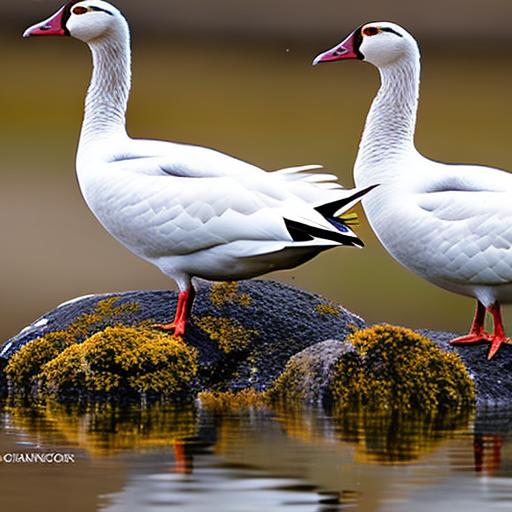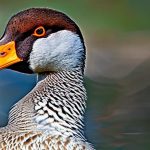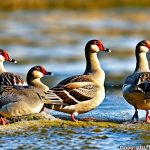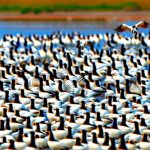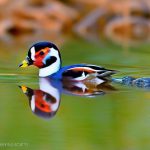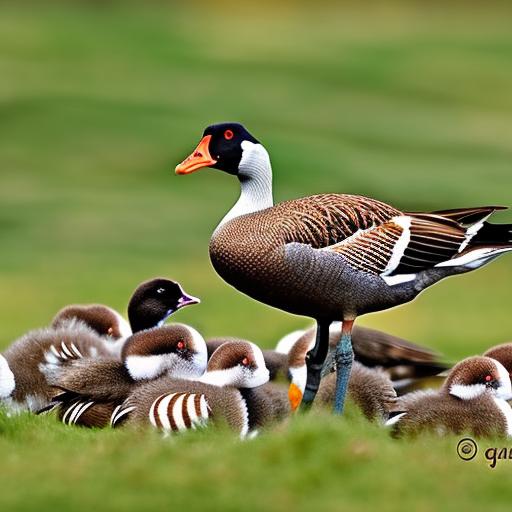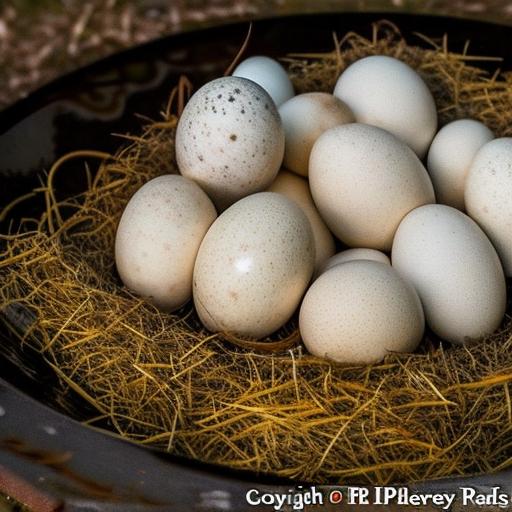Embden geese, also known as Emden geese, are a breed of domesticated geese that originated in Germany. They are one of the largest and most popular breeds of geese, known for their striking white plumage and gentle temperament. Embden geese have a long history of being bred for their meat, eggs, and feathers.
Breeding Embden geese can be a rewarding endeavor for both hobbyists and commercial breeders. These birds are known for their high fertility rates and excellent egg-laying abilities. They are also relatively easy to care for and can adapt well to different climates and environments.
Key Takeaways
- Embden Geese are a popular breed for breeding due to their size and meat production capabilities.
- Characteristics of Embden Geese include a white plumage, orange beak and feet, and a calm temperament.
- When selecting Embden Geese for breeding, it is important to choose healthy birds with desirable traits.
- Preparing for breeding season involves providing proper nutrition, housing, and ensuring a suitable environment.
- Mating techniques for Embden Geese include natural mating or artificial insemination.
Understanding the Characteristics of Embden Geese
Embden geese are large birds with a distinctive appearance. They have a long, graceful neck, a broad chest, and a sturdy body. Their plumage is pure white, which makes them highly sought after for ornamental purposes. They have orange bills and feet, which provide a striking contrast against their white feathers.
In terms of temperament, Embden geese are known for being docile and friendly. They are generally calm and easy to handle, making them suitable for both novice and experienced breeders. However, it is important to note that individual geese may vary in temperament, so it is essential to handle them regularly from a young age to ensure they remain tame.
When it comes to egg-laying habits, Embden geese are prolific layers. They can lay up to 50-60 eggs per year, with peak production occurring during the spring and summer months. The eggs are large and white in color. It is important to provide them with suitable nesting areas to encourage egg-laying behavior.
Selecting the Right Embden Geese for Breeding
When selecting Embden geese for breeding purposes, it is crucial to choose healthy birds with desirable traits. Look for birds that are active, alert, and free from any signs of illness or deformities. Avoid birds that are excessively aggressive or show signs of poor health.
Evaluate the breeding potential of each bird by considering their physical characteristics, such as size, conformation, and plumage quality. Look for birds that conform to the breed standard and have good body structure. Additionally, consider their egg-laying abilities and fertility rates.
To avoid inbreeding, it is important to introduce new bloodlines into your flock periodically. Inbreeding can lead to reduced fertility, poor hatch rates, and an increased risk of genetic disorders. Consider purchasing new birds from reputable breeders or participating in breed exchange programs to diversify your flock’s genetics.
Preparing for Embden Geese Breeding Season
Before the breeding season begins, it is important to create a breeding plan to ensure successful reproduction. Determine the number of breeding pairs you want to have and allocate suitable housing and nesting areas for them. Provide ample space for each pair to prevent aggression and territorial disputes.
Proper nutrition is essential for successful breeding. Ensure that your geese have access to a balanced diet that includes a variety of grains, greens, and protein sources. Supplement their diet with calcium-rich foods, such as crushed oyster shells, to support eggshell formation.
Adequate housing is crucial for the health and well-being of your geese during the breeding season. Provide them with clean and spacious housing that protects them from extreme weather conditions. Ensure that nesting areas are comfortable and secure to encourage egg-laying behavior.
Mating Techniques for Embden Geese
Embden geese can be bred using natural mating or artificial insemination techniques. Natural mating involves allowing the geese to mate freely in a supervised environment. It is important to provide enough space for mating pairs and monitor their behavior to prevent aggression or injury.
Artificial insemination is a technique used to control breeding and ensure genetic diversity. It involves manually collecting semen from a male goose and inseminating a female goose using a syringe or pipette. This technique is commonly used in commercial breeding operations or when specific genetic traits need to be preserved.
To increase the chances of successful breeding, it is important to provide a suitable environment for mating. Ensure that the geese have access to clean water for bathing and mating rituals. Provide privacy by creating secluded areas or using visual barriers to reduce stress and distractions.
Embden Geese Egg Incubation and Hatching
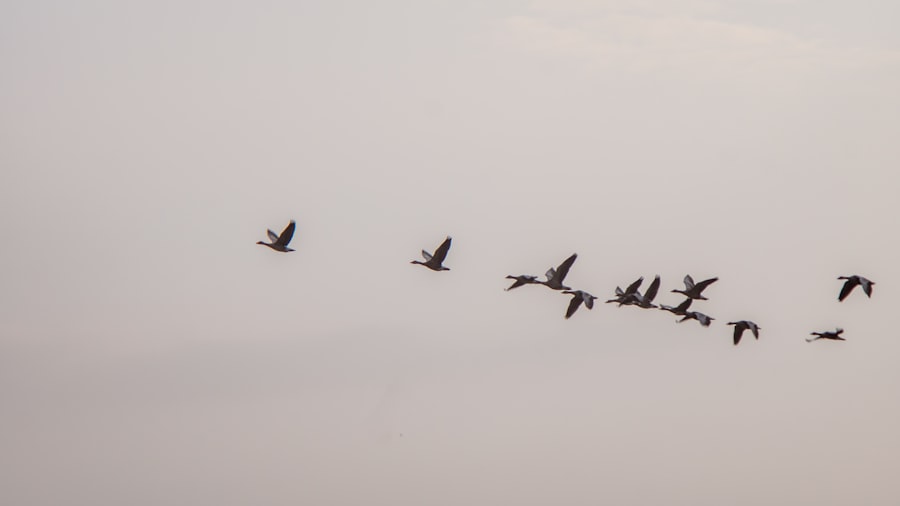
Once the geese have successfully mated, it is important to collect and store the eggs properly for incubation. Collect the eggs daily and store them in a cool, dry place with a consistent temperature. Avoid washing the eggs as this can remove the protective coating and increase the risk of contamination.
There are several methods of incubating Embden geese eggs, including natural incubation using broody geese or using artificial incubators. Natural incubation involves allowing broody geese to sit on the eggs and hatch them naturally. Artificial incubation involves using specialized equipment to control temperature, humidity, and turning of the eggs.
Hatching and caring for goslings requires careful attention to temperature, humidity, and nutrition. Provide a warm and secure brooding area for the goslings with access to clean water and suitable feed. Monitor their health closely and address any issues promptly to ensure their survival.
Embden Geese Chick Rearing and Care
Brooding chicks require a warm and secure environment to thrive. Provide them with a brooder box or pen that is well-ventilated, draft-free, and protected from predators. Maintain a consistent temperature of around 95°F (35°C) for the first week, gradually reducing it by 5°F (2°C) each week until they are fully feathered.
Feeding and watering are crucial for the growth and development of goslings. Provide them with a balanced diet that includes a high-quality starter feed specifically formulated for waterfowl. Ensure that they have access to clean water at all times and monitor their intake to prevent dehydration.
Prevent common health issues in goslings by practicing good hygiene and providing a clean environment. Regularly clean their brooder area, provide fresh bedding, and monitor for signs of illness or injury. Consult a veterinarian if you notice any abnormal behavior or symptoms.
Managing Embden Geese Flocks for Optimal Breeding
To ensure optimal breeding, it is important to maintain the overall health of your flock. Provide regular veterinary care, including vaccinations and deworming, to prevent the spread of diseases. Practice good biosecurity measures to minimize the risk of introducing pathogens into your flock.
Managing breeding ratios is essential to prevent overbreeding or underbreeding. The ideal ratio is one male for every three to five females. This allows for successful mating without excessive aggression or stress. Monitor the behavior of your geese closely and make adjustments as necessary.
Monitor egg production to ensure that your geese are laying consistently. Keep track of the number of eggs laid by each female and identify any patterns or changes in production. Address any issues promptly, such as low egg production or abnormal egg quality, to maintain optimal breeding conditions.
Common Problems in Embden Geese Breeding and How to Solve Them
Egg infertility is a common problem in geese breeding. It can be caused by various factors, including poor nutrition, age-related decline in fertility, or genetic issues. Ensure that your geese have a balanced diet and access to suitable nesting areas to encourage successful mating and egg production.
Poor hatch rates can be caused by factors such as improper incubation conditions, genetic issues, or bacterial contamination of the eggs. Ensure that your incubation equipment is properly calibrated and maintained. Collect and store eggs properly to minimize the risk of contamination.
Health issues can arise in geese breeding, including respiratory infections, parasites, and injuries. Practice good biosecurity measures to prevent the spread of diseases. Provide regular veterinary care and address any health issues promptly to ensure the well-being of your flock.
Embden Geese Breeding for Profit: Tips and Strategies
Breeding Embden geese can be a profitable venture if done correctly. Marketing your birds effectively is crucial to attract potential buyers. Utilize online platforms, social media, and local agricultural fairs to showcase your birds and reach a wider audience.
Maximize egg production by providing optimal nutrition, suitable nesting areas, and a stress-free environment. Monitor egg production closely and identify any issues that may affect productivity. Consider implementing artificial lighting to stimulate egg-laying during the winter months.
Selling goslings and adult birds can be a lucrative source of income. Advertise your birds through various channels, such as online classifieds or local farm supply stores. Offer discounts for bulk purchases or provide additional services, such as delivery or after-sales support, to attract customers.
In conclusion, breeding Embden geese can be a rewarding and profitable venture with the right knowledge and preparation. By understanding the characteristics of these birds, selecting the right breeding stock, and managing your flock properly, you can produce healthy goslings and adult birds for sale. With a little patience and dedication, you can become a successful Embden geese breeder.
If you’re interested in breeding Embden geese, you may also want to learn about the mating season for turkeys. Poultry Wizard has a helpful article that discusses the different factors to consider during this crucial period. Understanding the mating season for turkeys can provide valuable insights into successful breeding practices for other poultry species, including Embden geese. To read more about turkey mating season, click here.
FAQs
What are Embden geese?
Embden geese are a domestic breed of geese that originated in Germany. They are large, white geese with orange bills and feet.
What is the purpose of breeding Embden geese?
Embden geese are primarily bred for their meat, but they are also kept for their eggs, feathers, and as ornamental birds.
What is the breeding season for Embden geese?
The breeding season for Embden geese typically begins in late winter or early spring, depending on the climate.
How do you select breeding stock for Embden geese?
When selecting breeding stock for Embden geese, it is important to choose birds that are healthy, have good conformation, and exhibit desirable traits such as good egg production or meat quality.
What is the incubation period for Embden geese?
The incubation period for Embden geese is approximately 28-34 days.
What is the ideal temperature for incubating Embden goose eggs?
The ideal temperature for incubating Embden goose eggs is between 99-100 degrees Fahrenheit.
How do you care for Embden goslings?
Embden goslings require a warm, dry environment and access to clean water and food. They should be kept in a brooder for the first few weeks of life and gradually introduced to the outdoors as they grow.
What are some common health issues that affect Embden geese?
Common health issues that affect Embden geese include respiratory infections, parasites, and foot problems. It is important to provide proper nutrition and regular veterinary care to prevent and treat these issues.
Meet Walter, the feathered-friend fanatic of Florida! Nestled in the sunshine state, Walter struts through life with his feathered companions, clucking his way to happiness. With a coop that’s fancier than a five-star hotel, he’s the Don Juan of the chicken world. When he’s not teaching his hens to do the cha-cha, you’ll find him in a heated debate with his prized rooster, Sir Clucks-a-Lot. Walter’s poultry passion is no yolk; he’s the sunny-side-up guy you never knew you needed in your flock of friends!

